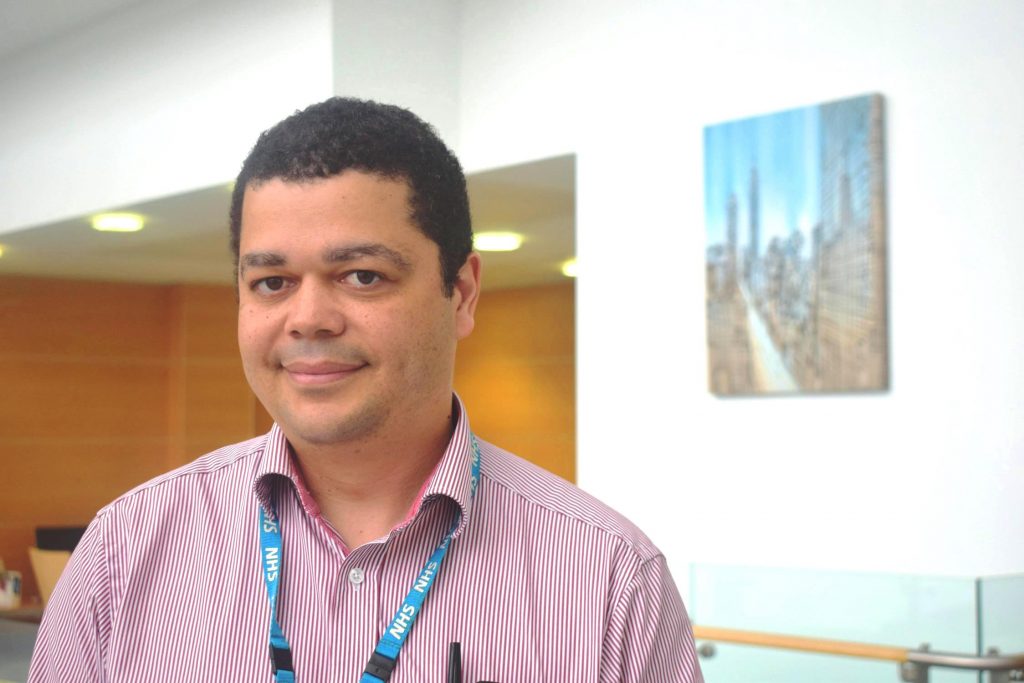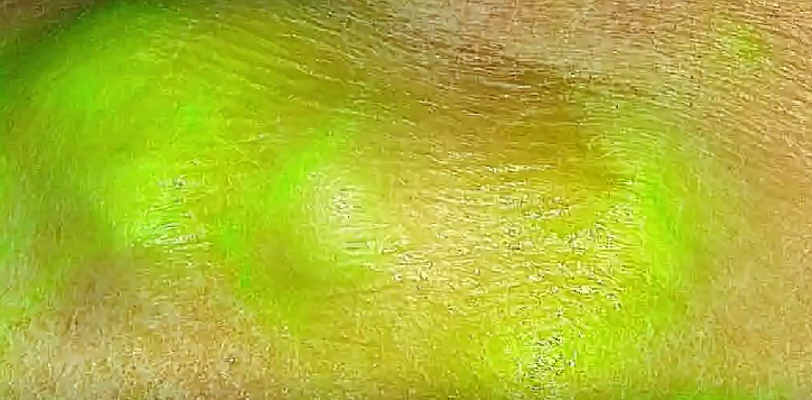The Newcastle upon Tyne Hospitals NHS Foundation Trust has received £1.4m to trial a method that could reduce the impact of sarcoma surgery on patients.
Sarcomas are a group of rare cancers affecting the tissues that connect, support, and surround other body structures and organs.
Surgery usually involves removing the tumour along with an area (margin) of healthy tissue around it to make sure no cancer cells are left behind. The healthy tissue is sent to a laboratory to confirm whether the cancer has spread to these margins.
While every effort is made to reduce the impact of surgery, removing healthy tissue can leave patients with long-term pain, disability and, in some cases, limb amputation is required.
Harmless green dye
Now, clinicians and researchers at the North of England Bone and Soft Tissue Tumour Service, part of Newcastle Hospitals, will be trialling a new method which uses a harmless green dye to illuminate the tumour under a special infrared camera.
The dye is called ICG (indocyanine green) and is injected into the vein of a patient the afternoon before surgery. The ICG dye then builds up in the sarcoma and clears away from the normal tissues around the cancer.
ICG fluoresces (glows) when a special camera with an infrared beam is directed at it. During surgery, the surgeon can use the infrared camera to look at where they are operating. Areas of cancer will glow green through normal tissue, helping the surgeon to remove the affected areas and leave the right amount of healthy tissue behind.
As part of the clinical trial, which is funded by the National Institute for Health and Care Research (NIHR), patients will be selected at random to either receive their usual care, or the procedure using the dye. Researchers will then compare both methods to see which one has the most benefit for patients after surgery.
Making a difference to patients

Mr Kenny Rankin, consultant orthopaedic surgeon at Newcastle Hospitals and honorary senior lecturer at Newcastle University, said:
“Surgery to remove sarcomas involves taking away some of the surrounding healthy tissue to make sure no cancer cells are left behind.
“Unfortunately, removing this tissue can have a significant impact on the appearance and function of the body part affected by the tumour, and further surgery is sometimes needed.
“We hope that this new technique will help surgeons to remove the healthy tissue in a more precise way, with the aim of reducing the impact of surgery for patients and improving their quality of life.”
Patients will be followed up during routine clinic visits up to one year after their operation and at five years to check the long-term results.
Charitable funding
In 2018, the Sir Bobby Robson Foundation, part of Newcastle Hospitals Charity, gave a £433,838 grant to fund a new project to help answer important questions about cancer by ensuring research is designed in the best way possible.
The Sir Bobby Robson Foundation Clinical Trials Design Team is based at Newcastle University and works with cancer researchers – the clinicians and scientists known as ‘investigators’ – to design and develop new trials.
Rebecca Maier, co-lead of the Sir Bobby Robson Foundation Cancer Trials Design Team based in Newcastle Clinical Trials Unit, said:
“The Sir Bobby Robson Foundation Cancer Trials Design Team at Newcastle University has been helping Kenny over the last couple of years to develop this trial, and we are delighted that funding has now been awarded from the NIHR.
“Many members of the Sir Bobby Robson team are also part of the research team, so we will be helping with the work to further develop and conduct the research over the coming years.
“It is fantastic that the money we have from the foundation to support the design team has resulted in such a prestigious award of funding, and for such an important trial. We are looking forward to the first patients being recruited, and hope that in the future the findings will benefit patients with sarcoma in the North East and beyond.”
